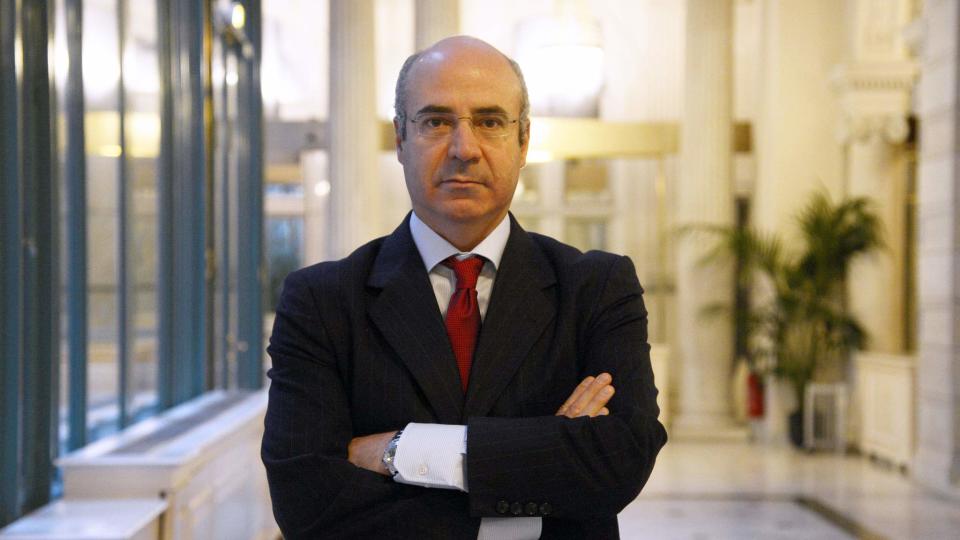UK 'Turning Blind Eye' To Russian Dirty Money
British authorities are refusing to investigate evidence of "dirty" Russian money being laundered through UK companies and banks because they don't want to "rock the boat", a former hedge fund boss has told MPs.
Bill Browder claimed he had lodged six complaints relating to £20m of stolen funds - but law enforcement agencies "always found excuses not to investigate".
Speaking to the Commons Home Affairs Committee, the anti-corruption campaigner said the illicit cash was connected to a £160m tax refund fraud on his Russian Hermitage Fund uncovered by his lawyer, Sergei Magnitsky.
Mr Browder became a prominent anti-corruption campaigner after Mr Magnitsky died in a Russian prison cell in 2009 amid allegations he had suffered beatings and had been denied medical treatment.
After his death, Mr Magnitsky was put on trial, with an empty dock in the courtroom, and convicted of the very tax fraud he had been investigating. The procedure was widely condemned as a farce by critics of Vladimir Putin's government.
Mr Browder was himself expelled from Russia.
The financier has long alleged that a group of high-ranking Russian officials had perpetrated the fraud.
He told the committee that 11 other countries - including Switzerland, France and the US - had launched criminal investigations into the stolen funds, while the UK's National Crime Agency, the Metropolitan Police and the Serious Fraud Office declined to do so.
And, according to Mr Browder, that money laundering is the tip of the iceberg - as he believes the sum trafficked into the UK has run into "hundreds of billions of dollars".
"I think there is a general political feeling that you don't want to rock the boat," Mr Browder explained. "So many people benefit from that dirty money here, it is a politically toxic issue to address.
"If there are a lot of businesses that are effectively surviving off the back of this money that wouldn't survive otherwise and they have friends in high places - these people are very close geographically to (Parliament) - they're going to say 'Don't do that'."
He also described how an "orgy of spending" on luxury goods including properties, yachts and designer dresses had taken place using dirty money, mainly in exclusive areas of London such as Belgravia, Knightsbridge, Hampstead and Chelsea.
Mr Browder concluded with a warning that turning a blind eye can make laundered funds appear legitimate, as authorities in other countries would not think to question money which was flowing into their economy from the UK.

 Yahoo Finance
Yahoo Finance 

